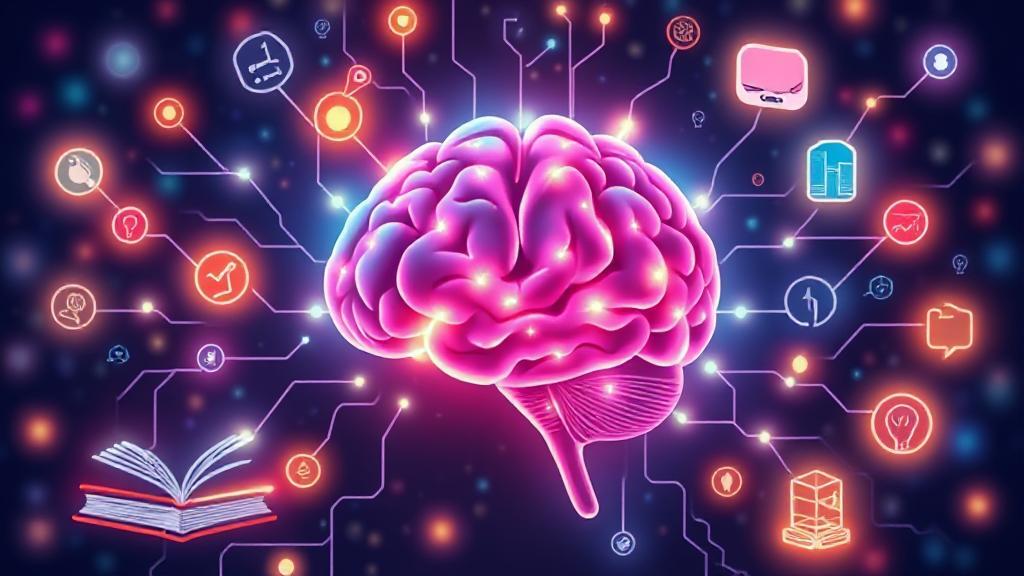Introduction
Memory is a cornerstone of our cognitive abilities, shaping how we learn, work, and interact with the world. While some memory decline is a natural part of aging, research shows that memory can be improved at any age through a combination of healthy lifestyle habits, mental exercises, and practical strategies. This article synthesizes evidence-based approaches—ranging from sleep and nutrition to mindfulness and mnemonic devices—to help you unlock your memory’s full potential.
The Science of Memory
Memory involves three main processes: encoding (taking in information), storage (maintaining it over time), and retrieval (accessing it when needed). There are different types of memory, including short-term, long-term, and working memory, each playing a unique role in our daily lives. For a deeper understanding, see Effective strategies to improve mental clarity.
Lifestyle Habits for a Sharper Memory
Prioritize Quality Sleep
Sleep is essential for memory consolidation—the process by which short-term memories are transformed into long-term ones. Adults should aim for 7–9 hours of sleep nightly. Poor sleep impairs both the formation and recall of memories. For actionable tips, visit Effective strategies to improve your sleep quality.
Tips for better sleep:
- Maintain a consistent sleep schedule
- Avoid screens before bedtime
- Create a relaxing bedtime routine
Stay Physically Active
Regular exercise increases blood flow to the brain and supports the growth of new neurons. Aerobic activities like brisk walking, swimming, and cycling are especially beneficial for memory and cognitive function.
Recommended activities:
- Brisk walking
- Swimming
- Cycling
- Dancing
For more, see Effective strategies to improve your balance.
Eat a Brain-Healthy Diet
A balanced diet rich in fruits, vegetables, whole grains, and omega-3 fatty acids supports brain health. The MIND diet, which combines elements of the Mediterranean and DASH diets, is particularly effective.
Memory-boosting foods:
- Blueberries
- Fatty fish (salmon, sardines)
- Walnuts
- Leafy greens
- Dark chocolate (in moderation)
Manage Stress Effectively
Chronic stress releases cortisol, which can damage the hippocampus—a brain region critical for memory. Incorporate stress-reduction techniques into your routine to protect cognitive health.
Effective stress reduction methods:
- Mindfulness meditation (The benefits of mindfulness meditation for mental and physical well-being)
- Yoga
- Deep breathing exercises
- Journaling
- Spending time in nature
For quick relief, try Effective ways to relieve stress quickly and explore The benefits of living a stress-free lifestyle.
Stay Socially Engaged
Social interaction stimulates the brain and helps ward off memory decline. Engaging in conversations, group activities, or volunteering provides cognitive benefits and emotional support.
Mental Strategies to Enhance Memory
Use Mnemonic Devices
Mnemonics are memory aids that help encode and retrieve information more easily.
Popular mnemonic techniques:
- Acronyms: e.g., "HOMES" for the Great Lakes
- Visualization: Creating vivid mental images
- Chunking: Breaking information into smaller, manageable units
- Rhymes: Using catchy phrases to remember facts
Practice Mindfulness and Meditation
Mindfulness meditation enhances working memory and attention. Even 5–10 minutes daily can increase gray matter in brain regions involved in memory. For beginners, see A beginner’s guide to meditation: How to get started and build a practice.
Challenge Your Brain
Just like muscles, your brain benefits from regular exercise. Learning new skills, playing strategy games, or solving puzzles strengthens neural connections.
Brain-challenging activities:
- Learning a new language
- Playing chess or Sudoku
- Taking up a musical instrument
Embrace Spaced Repetition and Active Recall
Instead of cramming, review information at increasing intervals over time (spaced repetition). Actively trying to retrieve information (active recall) is more effective than passive review.
Organize Your Information
Keeping information organized makes it easier to remember. Use calendars, to-do lists, and digital reminders to track important dates and tasks. For productivity tips, see How to stay focused when distractions take over.
Organization tools:
- Google Calendar
- Evernote
- Trello
Additional Tips and When to Seek Help
- Limit alcohol and avoid smoking: Both are linked to accelerated cognitive decline.
- Teach what you learn: Explaining concepts to others helps solidify your own understanding.
- Seek professional help: If you experience significant or persistent memory loss, consult a healthcare provider.
Conclusion
Improving your memory is a multifaceted process involving lifestyle choices, mental exercises, and healthy habits. By integrating these evidence-based strategies into your daily routine, you can enhance your memory, boost cognitive performance, and enjoy a sharper mind at any age. For more daily practices, see Daily habits to improve your mental health and Effective strategies to avoid burnout at work.
“Memory is the treasury and guardian of all things.” — Cicero
Remember: Small, consistent changes can lead to significant improvements in your memory and overall brain health.
